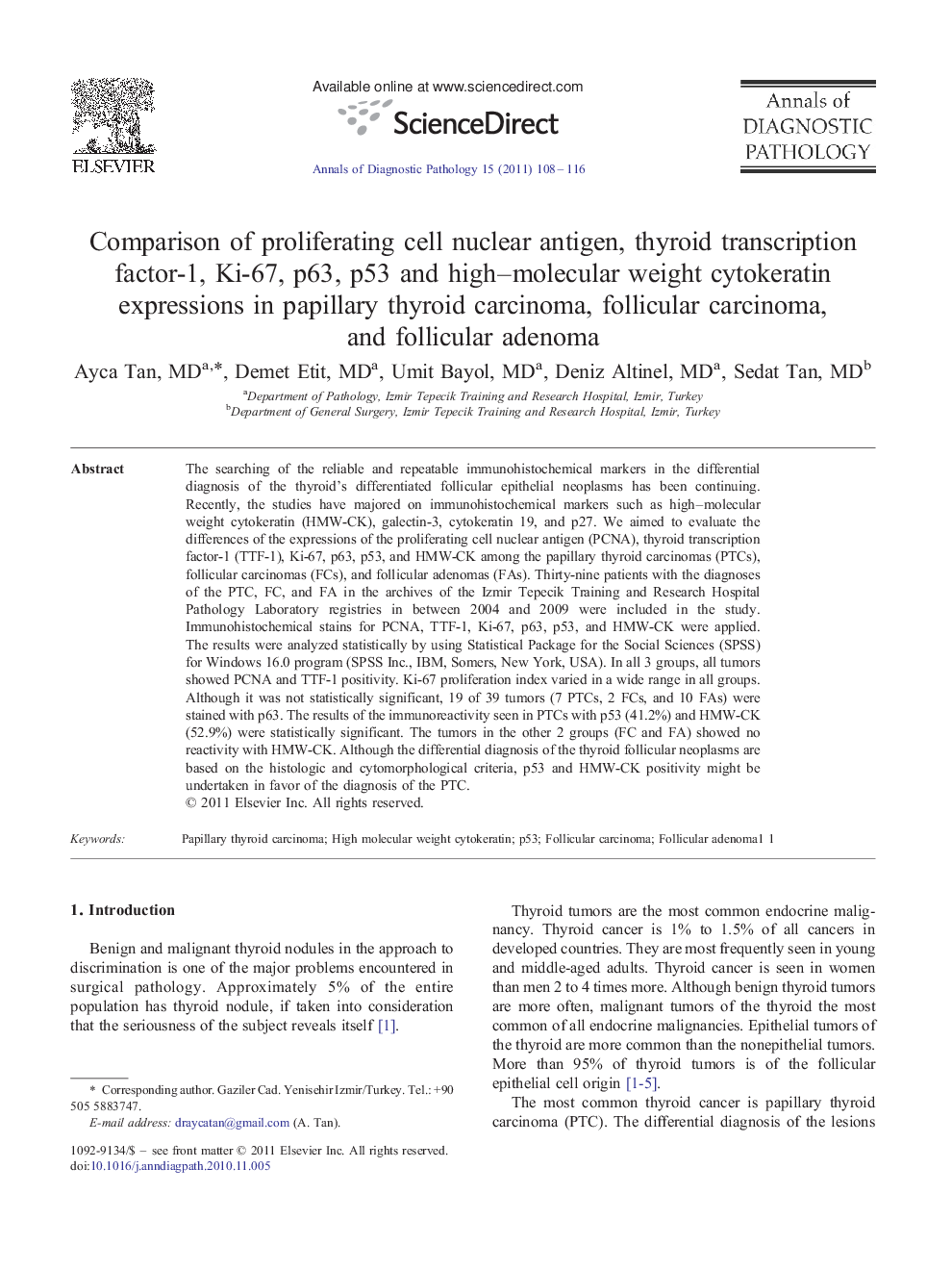| Article ID | Journal | Published Year | Pages | File Type |
|---|---|---|---|---|
| 4130243 | Annals of Diagnostic Pathology | 2011 | 9 Pages |
The searching of the reliable and repeatable immunohistochemical markers in the differential diagnosis of the thyroid's differentiated follicular epithelial neoplasms has been continuing. Recently, the studies have majored on immunohistochemical markers such as high–molecular weight cytokeratin (HMW-CK), galectin-3, cytokeratin 19, and p27. We aimed to evaluate the differences of the expressions of the proliferating cell nuclear antigen (PCNA), thyroid transcription factor-1 (TTF-1), Ki-67, p63, p53, and HMW-CK among the papillary thyroid carcinomas (PTCs), follicular carcinomas (FCs), and follicular adenomas (FAs). Thirty-nine patients with the diagnoses of the PTC, FC, and FA in the archives of the Izmir Tepecik Training and Research Hospital Pathology Laboratory registries in between 2004 and 2009 were included in the study. Immunohistochemical stains for PCNA, TTF-1, Ki-67, p63, p53, and HMW-CK were applied. The results were analyzed statistically by using Statistical Package for the Social Sciences (SPSS) for Windows 16.0 program (SPSS Inc., IBM, Somers, New York, USA). In all 3 groups, all tumors showed PCNA and TTF-1 positivity. Ki-67 proliferation index varied in a wide range in all groups. Although it was not statistically significant, 19 of 39 tumors (7 PTCs, 2 FCs, and 10 FAs) were stained with p63. The results of the immunoreactivity seen in PTCs with p53 (41.2%) and HMW-CK (52.9%) were statistically significant. The tumors in the other 2 groups (FC and FA) showed no reactivity with HMW-CK. Although the differential diagnosis of the thyroid follicular neoplasms are based on the histologic and cytomorphological criteria, p53 and HMW-CK positivity might be undertaken in favor of the diagnosis of the PTC.
